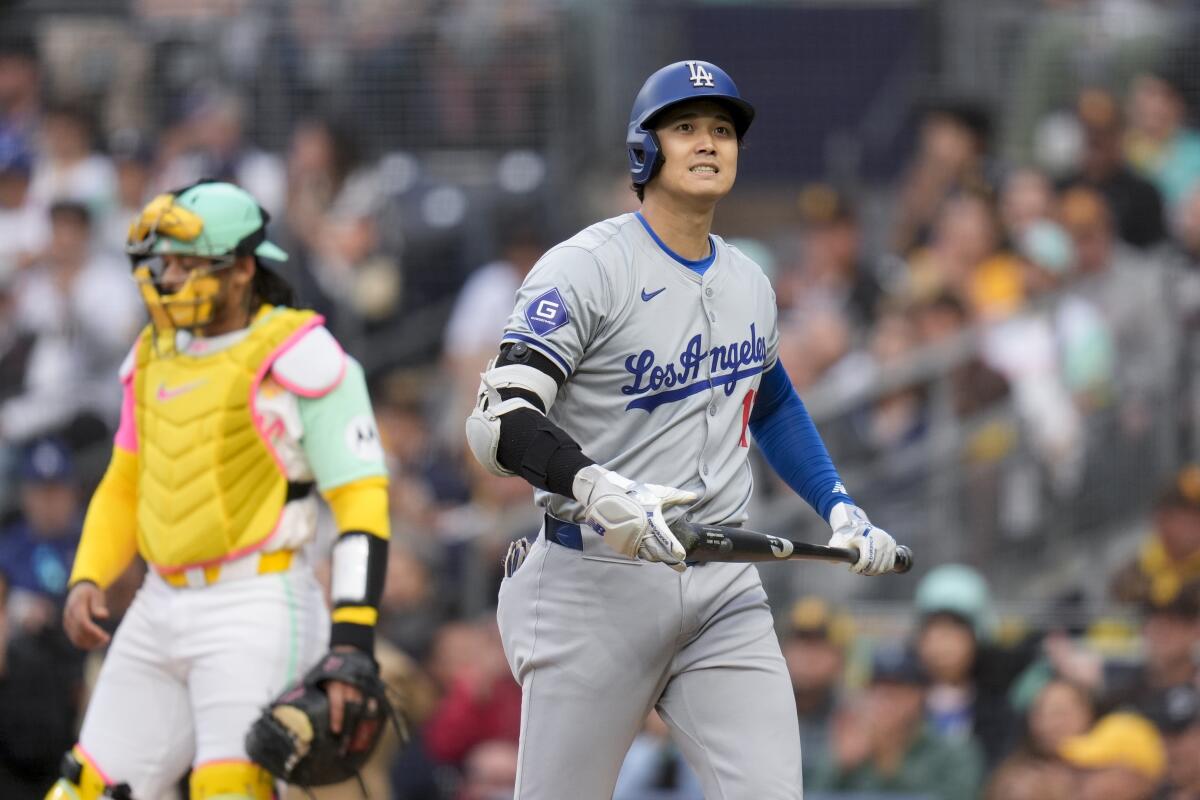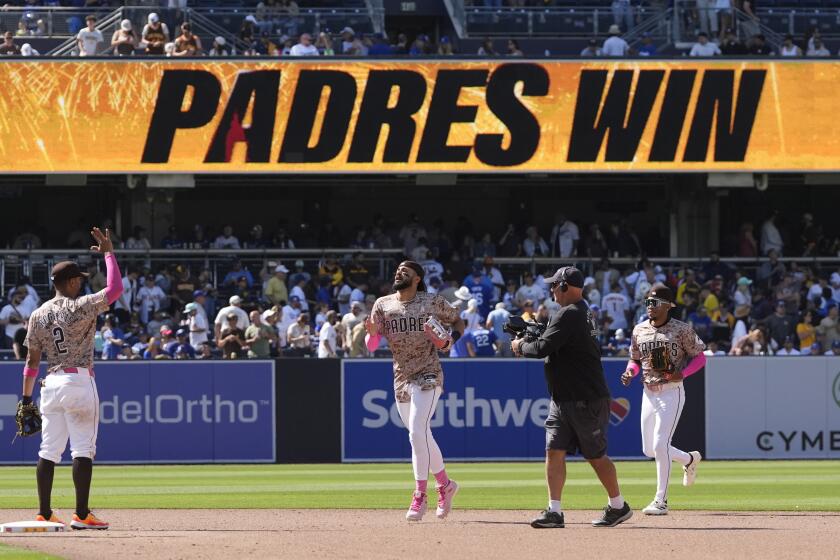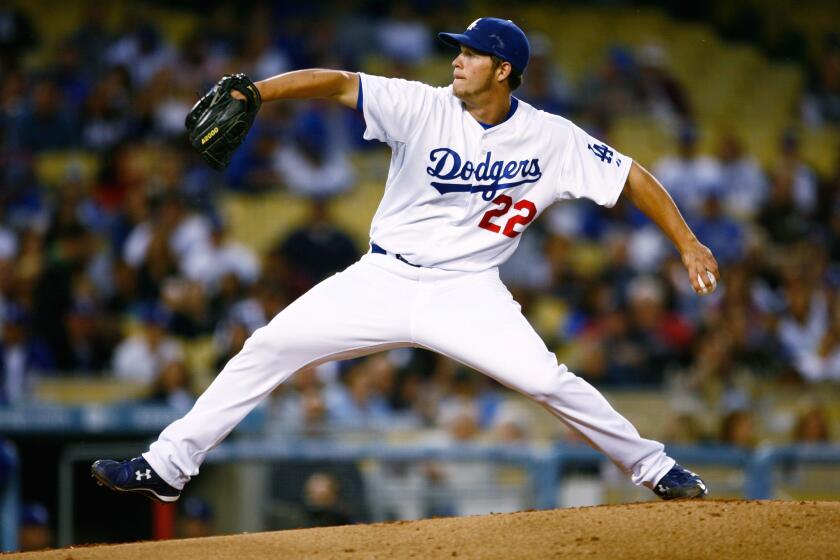Dave Roberts does his job: Protecting Shohei Ohtani from himself

- Share via
SAN DIEGO — Shohei Ohtani thought he could have played on Sunday. He was looking forward to facing Japanese compatriot Yu Darvish.
Dave Roberts didn’t let him.
Ohtani was never able to plead his case. On the morning of the Dodgers’ series finale against the San Diego Padres at Petco Park, Roberts told interpreter Will Ireton that Ohtani wouldn’t be in the lineup, and that was that.
A day after he was forced out of a game early by a stiff back, Ohtani didn’t play in the 4-0 loss to the Padres.
Ohtani is expected to return on Monday for the start of a three-game series in San Francisco, Roberts said.
The way Roberts managed Ohtani marked a promising start to one of the most important relationships in the organization — a relationship that figures to grow in importance when Ohtani resumes pitching next season.
For the second time already this season, the Dodgers drop a series to their intradivision rivals, falling to the Padres.
The manager was the manager. The player was the player.
This simple division of labor can be complicated when a player of Ohtani’s caliber is involved, but the Dodgers were able to do what the Angels often failed to do last year: They protected Ohtani from himself.
“I think he understands that it’s for his benefit and the team’s benefit,” Roberts said.
When Ohtani played for the Angels last year, what was most beneficial to the team was for him to play almost every game.
So he did.
The Angels were in no position to stop him, or even persuade him to undergo a MRI examination after he was removed from a start after only four innings because of a finger cramp.
The result?
A torn ulnar collateral ligament and a second Tommy John surgery.
The Angels couldn’t ask Ohtani to look at the bigger picture because there was none. October wasn’t guaranteed for them, as it is for the Dodgers, who entered Sunday with a 6½-game lead in the National League West.
In an excerpt from the book “The Last of His Kind,” the Dodgers quietly worked in 2009 to teach Clayton Kershaw a pitch that changed his career.
The Dodgers have a talented roster.
They have a track record.
They have realistic championship ambitions.
Asked if the promise of playing in October made it easier for him to accept Roberts’ decision, Ohtani wouldn’t say.
“Regardless” of the condition of his back, Ohtani said in Japanese, “there was thought of a day off.”
The Dodgers just started a 13-day stretch in which they will play 13 games. Ohtani described the injury as minor — he said he initially felt discomfort in his back working out before the game on Saturday — but Roberts wasn’t inclined to take any chances at this stage of the season, even for a game against a division rival.
“He obviously knows his body really well,” Robert said. “Right now, with the 13 in a row, I just wanted to make sure we were a little more cautious.”
Taking the decision out of Ohtani’s hands was a small but critical move by Roberts. As the Angels learned last year, once the terms of a relationship are established, they are difficult to undo.
How Dodgers management communicates with their star player will be more consequential later in the season and even more so next year when Ohtani makes his anticipated return to the mound. Ohtani will be coming back from a second elbow reconstruction.
Of course, the team entered its relationship with Ohtani with more leverage than the Angels ever had.
In retrospect, it looks as if Ohtani chose to break into the major leagues with the Angels because of how powerless they were. As a non-contending club, they didn’t have any competitive reasons to deny him the opportunity to be a two-way player.
That’s not to say the Dodgers aren’t being rewarded for having Ohtani on their team. Of course they are. As a one-way player this season, he’s still the best player in the game. He sells merchandise.
Yet Ohtani needs the Dodgers as much as they need him. They’re offering him something he desperately wants that few other organizations can: A legitimate chance to win.
Roberts said he will ask Ohtani for input in the future when figuring out his playing schedule. Roberts should. Ohtani deserves that much. However, the Dodgers can’t afford for their relationship with Ohtani to be as lopsided as that of the Angels. Sunday was a sign that it might not be.
More to Read
Are you a true-blue fan?
Get our Dodgers Dugout newsletter for insights, news and much more.
You may occasionally receive promotional content from the Los Angeles Times.









